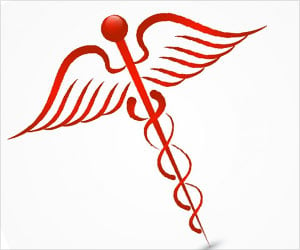A sharp division between nationalists and pro-Russian in Ukrainian city of Donetsk has been noted between churches tied to Moscow and those wanting to keep the country united.

The "aggression" he refers to includes the seizure of government buildings in Donetsk and other parts of the region by pro-Russian separatist rebels, backed by armed men suspected of direct ties to Moscow.
Tikhon oversees a modest chapel in the city -- two rooms on the ground floor of an office block where he shared paska, a traditional Easter cake, with several parishioners after work on Easter Monday.
He joined a 2,000-strong rally for Ukrainian unity in the city of around one million people last week. His Christian credentials do not mean that he shies away from the looming conflict.
Referring to the threat of a Russian takeover, he said: "If God allows such a thing to happen, we will defend our country."
"I know several people who are ready to defend their homeland, Ukraine, arms in their hand. A great number of my parishioners and members of my family tell me that they will start a guerrilla war."
Advertisement
The Orthodox Church is the largest religion in Ukraine, but is split between those tied to Moscow and those linked to a new patriarchate set up in Kiev in 1992 following the collapse of the Soviet Union.
Advertisement
For Father Georgy Gulyayev, press officer for the Donetsk diocese of the Moscow patriarchate, the divide is religious, not political.
"We have called for calm, we pray for peace and for a compromise in this complicated situation. But we don't participate in these common prayers and protests because our religious practices are different," he said.
"We take a balanced position," he said, adding that the Russian Orthodox Church has parishioners in the west of the country as well as the east and "cannot defend the interests of one single region".
Many are not convinced.
"Many priests from the Moscow patriarchate take an openly pro-Russian position," said Father Tikhon.
Most of his Greek Catholic parishioners, who number around 15,000 in the region, are descendants of Ukrainians who were forcibly moved here from the countryside under Stalin and remained loyal to the Church even though it was banned from 1946 until the fall of the USSR.
In a small square near the centre of Donetsk, a little tent has been transformed into another makeshift chapel for those who have remained loyal to Kiev.
Father Sergei leads prayers for the future of his country. Next to his tent, a large wooden cross flies a Ukrainian flag.
Greek Catholics, Roman Catholics and Protestants all gather here to pray for the country. Again, the Moscow patriarchate do not take part.
"For 50 days, representatives of diverse branches of the Church have come here to pray for Ukraine, that there is no war," said Father Sergei, adding that he supports "the territorial integrity of Ukraine".
"We are against separatism. Satan divides and God unites," he said.
For Father Tikhon, the locals have no choice but stand up for themselves. He recalls the armed nationalist movement that fought for Ukraine's independence from Soviet control up to the 1950s.
"We can't count on the Europeans and the United States. The future of our country depends on us," he said.
Source-AFP









